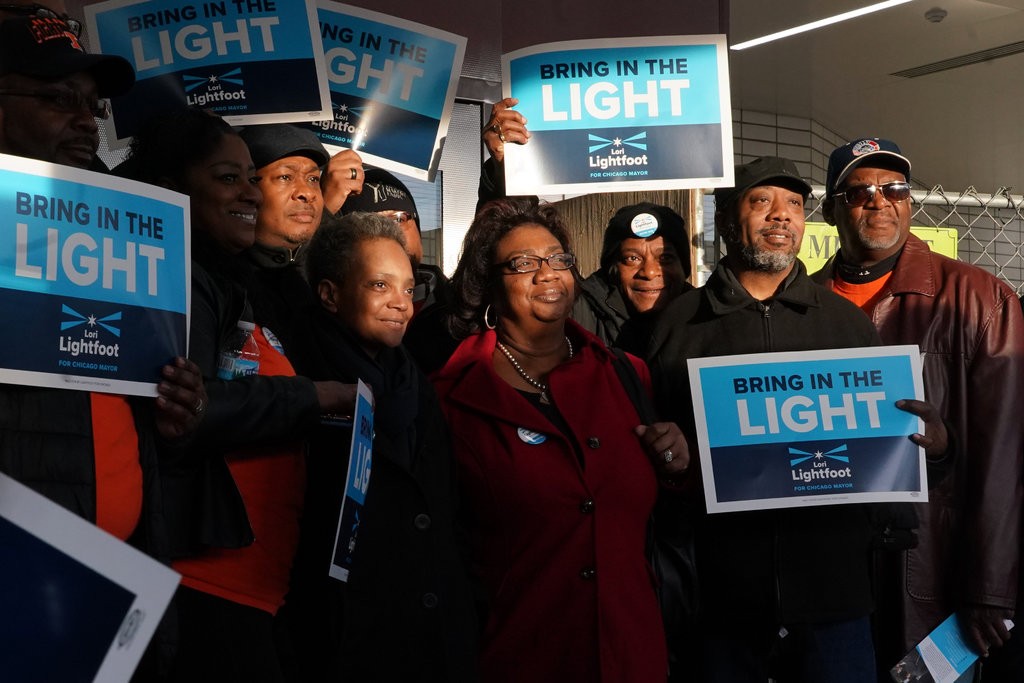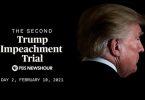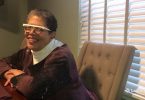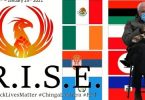By Mitch Smith
CHICAGO — After Rahm Emanuel announced he would not seek another term as Chicago’s mayor, the field of would-be replacements seemed to grow by the day. Lori Lightfoot, a former federal prosecutor who had never held elective office, often seemed an afterthought in a mounting list of prominent names — a member of the Daley political dynasty, the head of the county’s Democratic Party, a former leader of Chicago’s public school system.
Yet on Tuesday, voters sided with Ms. Lightfoot in overwhelming margins, handing her a resounding victory as she prepares to become the first African-American woman and first openly gay person to serve as Chicago’s mayor. Ms. Lightfoot’s outsider status and her pledge to combat political corruption resonated across the city’s traditional dividing lines of race and class. With 97 percent of precincts reporting, she had received 73 percent of the vote and was leading in all 50 City Council wards.
“Today, you did more than make history,” Ms. Lightfoot told a packed ballroom of her supporters that chanted her name on Tuesday night. “You created a movement for change.”
Ms. Lightfoot, a Democrat, used her acceptance speech to underscore the historic nature of her victory. As her wife and daughter stood nearby, Ms. Lightfoot said her win proved that Chicago was “a city where it doesn’t matter what color you are” and “where it doesn’t matter who you love, just as long as you love with all your heart.” She also reiterated her promise to invest in struggling neighborhoods, not just the booming downtown, a hallmark theme of her campaign pitch.
“We can and will make Chicago a place where your ZIP code doesn’t determine your destiny,” she said.
Ms. Lightfoot finished with the most support among 14 candidates in February’s first-round, nonpartisan election. In Tuesday’s runoff, she broadened that appeal and soundly defeated Toni Preckwinkle, a longtime politician who leads the county board and local Democratic Party. The two women will soon have offices in the same building, and have vowed to work together despite a campaign that was often acrimonious.
In the Logan Square neighborhood on the city’s Northwest Side, Deepti Pareenja, 37, said she voted for Ms. Lightfoot on Tuesday in part because of the candidate’s lack of political experience.
“It’s because of Chicago,” Ms. Pareenja said. “We have a history of corruption with people who’ve been ingrained in politics for multiple decades.”
Ms. Pareenja said she also voted for Ms. Lightfoot in February’s first-round election, but at the time did not think Ms. Lightfoot had much of a chance of winning. Ms. Pareenja said she was surprised and excited when the runoff field was set.
The fact Ms. Lightfoot had never served in elective office also helped her earn the vote of Michelle Saulnier, 29, a Ph.D. student.
“It’s a good thing, especially in Chicago where there’s known to be a lot of corruption,” Ms. Saulnier said on Tuesday after casting her ballot in the Logan Square neighborhood, where Ms. Lightfoot lives and her campaign signs were all around. “I think that’s really important to try to break some of these cycles that we’re in.”
Don Rose, a political consultant who was a senior adviser to the Lightfoot campaign, said that Ms. Lightfoot benefited from recent corruption scandals that seemed to work against any mayoral candidate who was already part of the Chicago political establishment.
“It was the perfect situation for some kind of outsider who would capture that mantle and consolidate the reform-minded vote,” he said. “People got fed up.”
Ms. Lightfoot, 56, who held city government jobs under two mayors, presented herself on the campaign trail as an antidote to Mr. Emanuel’s eight years in office and as an answer to the city’s far longer tradition of machine politics. She criticized Mr. Emanuel’s decision to close dozens of schools, mainly in Hispanic and black neighborhoods, and focused especially on promises to overhaul the Chicago Police Department and reduce gun violence.
“People feel like the violence is out of control and that there’s no plan,” Ms. Lightfoot said in an interview last year.
Just a few years ago, Mr. Emanuel turned to Ms. Lightfoot during the biggest crisis of his tenure. A Chicago police officer, Jason Van Dyke, had just been charged with murder in the death of a black teenager, Laquan McDonald, and protesters were calling for Mr. Emanuel’s ouster.
In the months that followed, Ms. Lightfoot was chairwoman of a panel that met with residents and produced a scathing report. The document accused the Police Department of systemic racism and found that officers had lost the trust of residents and failed to instill a sense of safety.
“What we heard from people all across the city is they felt like they didn’t even have a claim to the geography in front of their house, on their street, or in their neighborhoods,” Ms. Lightfoot said when the report was released in spring 2016.
After the report was made public, Ms. Lightfoot drifted away from Mr. Emanuel, eventually resigning her role as president of the Chicago Police Board, which oversees officer discipline, and entering the mayoral race in May.
At the time, Ms. Lightfoot was one of only a handful of figures willing to run against Mr. Emanuel, who was widely expected to appear on the ballot until announcing in September that he would not. As the field of candidates grew more vast, including the entrance of Ms. Preckwinkle, Ms. Lightfoot forged ahead with her campaign.
There were reasons for skepticism: Ms. Lightfoot was relatively unknown in the city’s political realm, and her ballot petition signatures were briefly challenged last year. But she surged in at least one poll in the final days before the February election, and was endorsed by The Chicago Sun-Times.
“She has the vision, values, qualifications and policies to be an effective leader for the whole city, from the hedge fund managers to the fast food workers,” the newspaper’s editorial board wrote. “She is calm, focused, principled and independent.”
In the weeks since, as the race took on a venomous tone, Ms. Lightfoot tallied up endorsements across the city, including from several of her former opponents.
Ms. Lightfoot repeatedly portrayed Ms. Preckwinkle, with whom she agrees on most major policy issues, as a part of the Democratic machine that long dominated Chicago government.
Ms. Preckwinkle was fond of noting Ms. Lightfoot’s work as a “corporate lawyer” and her service in city government under the previous two mayors. And Bridget Gainer, a county commissioner who supported Ms. Preckwinkle, said her candidate’s political experience was in fact an asset.
“We need results, not just rhetoric,” Ms. Gainer said in February. “Chicago is not a training wheels job.”







